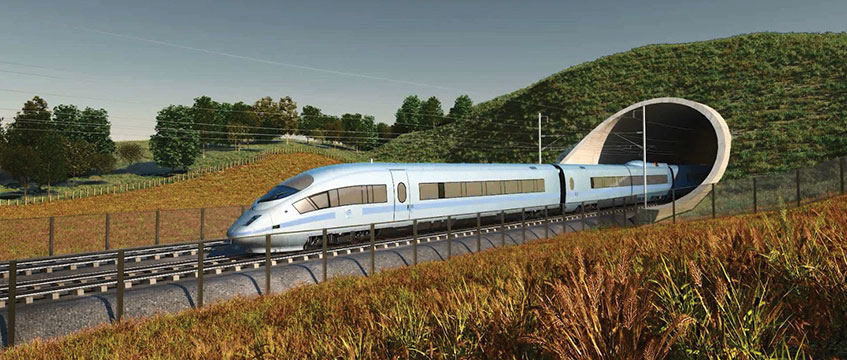HS2 protestor must pay £25,000 legal costs, Court of Appeal rules
A serial protestor against the HS2 rail infrastructure project must pay £25,000 in legal costs after repeatedly trespassing on woodland in Warwickshire.
Elliott Cuciurean, who is in his early twenties and goes by the nickname “Jellytot”, is an “adamant opponent” of HS2, according to the ruling, and has been protesting against the destruction of wildlife and ancient woodland.
In October 2020, he was found guilty of repeatedly breaking an injunction preventing “persons unknown” from trespassing in Crackley Wood, near Kenilworth. He was given a suspended prison sentence of six months, later reduced by the Court of Appeal to three.
A serial protestor against the HS2 rail infrastructure project must pay £25,000 in legal costs after repeatedly trespassing on woodland in Warwickshire.
Elliott Cuciurean, who is in his early twenties and goes by the nickname “Jellytot”, is an “adamant opponent” of HS2, according to the ruling, and has been protesting against the destruction of wildlife and ancient woodland.
In October 2020, he was found guilty of repeatedly breaking an injunction preventing “persons unknown” from trespassing in Crackley Wood, near Kenilworth. He was given a suspended prison sentence of six months, later reduced by the Court of Appeal to three.
At a later hearing, the sentencing judge also ordered him to pay £25,000 of the government’s £80,000 legal costs. Cuciurean, represented by prominent human rights lawyer Adam Wagner, appealed.
At a hearing earlier this month, Wagner argued that the prison sentence combined with the award of costs was disproportionate, and therefore interfered with his rights to expression and association under the Human Rights Act.
In a ruling handed down this week, a three-judge panel at the Court of Appeal upheld the costs order but said that, in future, judges in similar cases should consider whether a penalty and costs is disproportionate.
“As is so often the case, there are rights that pull in different directions,” said Lord Justice Lewinson, who wrote the ruling.
“It has also been authoritatively decided that there is no hierarchy as between the various rights in play. On the one hand, then, there are Mr Cuciurean’s rights to freedom of expression and freedom of peaceful assembly contained in articles 10(1) and 11(1) of the ECHR. On the other, there are the claimants’ rights to the peaceful enjoyment of their property.”
“There is no doubt that the right to freedom of expression and the right of peaceful assembly both extend to protestors,” he said. “On the other hand, articles 10 and 11 do not entitle a protestor to protest on any land of his choice. They do not, for example, entitle a protestor to protest on private land.”
In addition, the injunction clearly stated that trespass was not permitted and to do so would be contempt of court.
“It is no doubt the case that an award of costs against a defendant may cause hardship. It may affect their credit rating and in some cases may drive a defendant into insolvency. Countless unfortunate litigants have been driven into bankruptcy by costs orders made against them. But that has never been a reason either to refuse an order for costs in civil proceedings or… to limit the amount of costs to an amount which the defendant can in practice afford to pay,” the judge wrote.
He said a judge has discretion as to whether to award costs or not, and therefore the Court of Appeal should not interfere with the judge’s decision even if “it would have exercised the discretion differently”.
Even so, during the hearing Wagner argued that in such circumstances “at every stage” in legal proceedings the court had to “ask itself” whether interference with human rights is proportionate.
“Let me say at once that the judge did not follow this structured approach to his costs order,” Lewinson said.
“The reason is a simple one. He was not asked to… In future cases, a judge would be well advised to follow this structure.”
On his Twitter feed, Wagner said: “Our appeal did not succeed. However, the court gave some important guidance on how courts should approach making costs orders in contempt cases engaging the right to protest/free speech.
“The essential point is that, going forward, any court in a contempt case making a costs order will be ‘well advised’ to conduct a Convention-compliant proportionality exercise, including considering whether the combination of penalty and costs would be disproportionate.”
(1) Secretary of State for Transport (2) High Speed Two (HS2) Ltd v Elliott Cuciurean
Court of Appeal (Lewison LJ, Asplin LJ, Edit LJ), 16 May 2022
To send feedback, e-mail newsdesk@eg.co.uk or tweet @EGPropertyNews











